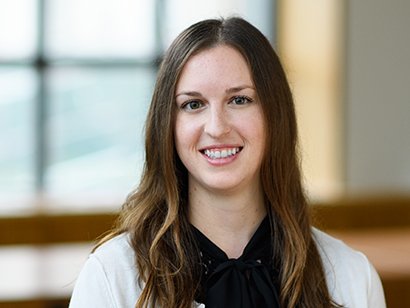Dayna Judge, Expert in Female Political Leadership, Joins Touro Faculty
Newest Addition to Touro’s Political Science Department Studies the Glass Cliff and Challenges Women Face in Public Office

Dayna Judge, MA, joined Touro in 2020 as a faculty member in the political science department of Lander College for Women (LCW) and Lander College for Men (LCM). Judge attended UCLA where she did an honors thesis examining the effects of government corruption on the malnutrition rate in India. After graduating, Judge moved to New York and worked as a research assistant at NYU and then proceeded to Princeton for her Ph.D., which she will complete this year. Her doctoral thesis focused on how women are elected.
How did you first become interested in politics?
I think I always had an interest in politics. I took AP government in high school and that really hooked me. I loved being a political science major in college. Politics impacts everyone’s daily life so it’s interesting to study.
What did you study for your Ph.D.?
I studied comparative politics. Like many people, my dissertation topic changed quite a few times. I eventually settled on the question of why women are so underrepresented at all levels of government and, when they do get elected, how that happens. I ended up focusing on what is popularly known as the “glass cliff,” the notion that women are brought in during times of crisis in order to clean up the mess that was left to them. This was a concept shown in business and organizational literature—companies tend to bring in female CEO’s when businesses are going badly. This gives the incorrect impression that women are bad for business, when, in reality, businesses are going badly when women are brought in. I applied that theory to politics. I did some of my fieldwork on Theresa May in the UK and the election of Sharlene Cartwright-Robinson as Premier of Turks and Caicos. In both cases, I found the same glass cliff. In 2016, the result of the Brexit vote was not what the Conservative party expected and there was a lot of fear and uncertainty in the country. David Cameron’s resignation created this space for May to come in. The same thing happened in Turks and Caicos; the Premier was forced to resign due to a corruption scandal, and after this, a woman was elected to clean up the mess.
One lesson we can take from this is that when we’re evaluating the tenure of elected female leaders, they’re not exactly set up for success in the same way as male leaders. The perception of female leaders being not effective enough is fueled by the fact that they are called to step up in challenging times. We might mistakenly infer that women aren’t good leaders, but what is more important is the context in which they are called to lead.
What courses are you teaching this year?
This spring I will be teaching a political science major requirement, Introduction to Comparative Politics, and an elective called Terrorism and Insurgency.
My area of expertise is comparative politics, so I am very excited to teach this class. I think a lot of students have this belief that the institutions of our American political system were somehow handed down by the Founders as these unchangeable realities, when in fact they are the product of specific decisions. Other countries have made very different choices, and I really l like talking to students about the consequences of those choices and the possibilities of different outcomes here in the US.
With Terrorism and Insurgency, I think a more apt name would be Political Violence. The big question we will tackle is, why do non-state actors resort to violence to achieve their political goals? We will focus mainly on terrorism and violence abroad, but we will also discuss instances of homegrown political violence, such as the recent killings at protests in Kenosha, Wisconsin.
College is a time when students begin shaping their own political views. What advice do you have for students as they develop political interests and leanings?
The statement that “College is a time when students begin shaping their own political views," is both true and it isn’t. On the one hand, the vast majority of political science research has concluded that a person's partisanship and ideology are established through a process of socialization that begins at a fairly young age, and persists throughout a person's life. Put less annoyingly, if your parents are Republicans, you have about a two-thirds chance of being a life-long Republican. On the other hand, that still leaves one-third of people to explain. My advice is definitely trite, but I really think it's important for people to seek sources of information with different political leanings and talk to people who have had different experiences. As humans, we are social creatures who want to be part of a team and to have the positions we already hold validated. Nobody wants to be told they are alone and wrong. But too much of this is what leads to these super entrenched positions, information echo chambers, and even violence. Next time an issue comes up that you don't have a fully formed opinion on, maybe see what the other side says about it.
What is your impression of the Touro students so far?
My students are really great. They’re engaged and ask a lot of questions. It’s always a fascinating time to study politics and the election has given my students a lot to talk about.
How has COVID-19 affected your teaching style?
It’s difficult now that we can’t hold classes in-person, but one thing I find interesting is how teaching over Zoom has made it easier for some students to speak up. Since we’re all on the same platform, classes feel much more casual instead of me standing in front of the classroom. There’s no “back of the classroom” with Zoom, and I think that’s allowed students to feel more comfortable.

